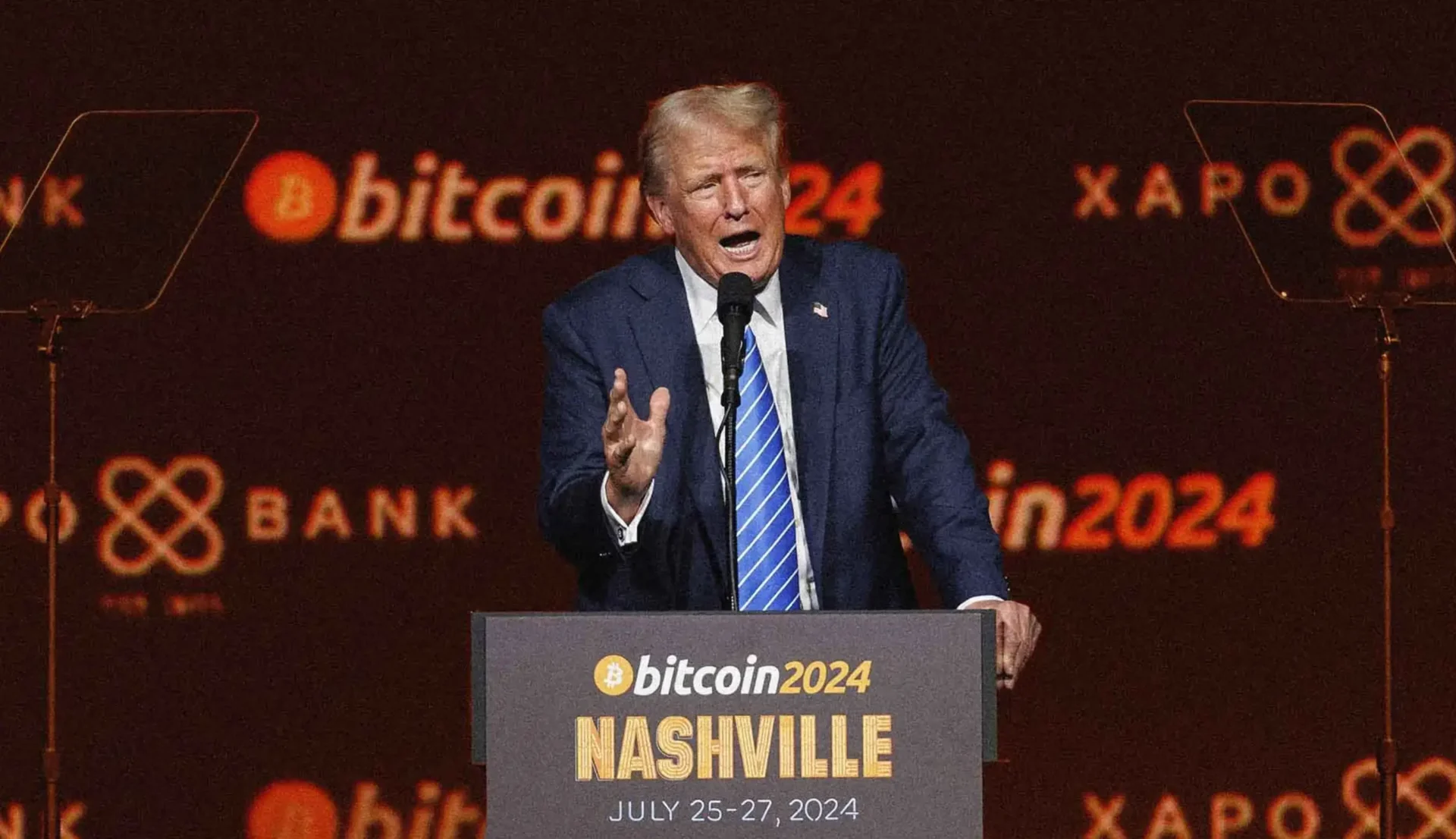Bitcoin supporters and cryptocurrency enthusiasts, while ostensibly libertarian and anti-state, have sought to directly influence state apparatuses. Cryptocurrency promoters take advantage of regulatory loopholes and profit from existing government regulation.
Such moves are well known in Latin America. In El Salvador, a crypto-enthusiast president legalized the use of bitcoin as legal tender and allocated huge public funds to — unsuccessfully — expand its use. In Puerto Rico, crypto investors sought a regulatory scheme that would take advantage of the archipelago’s colonial status vis-à-vis the U.S. to tax-free their capital gains.
In the United States, cryptocurrency enthusiasts are among the communities most likely to be beneficiaries of Donald Trump’s second term. Trump’s coalition has garnered the support of most voting men of all generations and of most racial and ethnic backgrounds. Various analysts have noted the success of Trump’s breakthrough in hegemonic male environments, thanks in part to waging an increasingly vicious “culture war” against transgender people and other minorities. In that context, the backing of young male spaces, including so-called “crypto-bros,” stands out.
The Republican Party emerged as the party of choice for those with a stake in a thriving cryptocurrency ecosystem, starting with Trump’s running mate. Senator JD Vance has long been a cryptocurrency enthusiast, a bitcoin holder and a figure linked to the conservative-libertarian line of Silicon Valley, having received huge funding from investor Peter Thiel throughout his political career.
The Trump administration would empower cryptocurrency companies and their markets through a massive realignment of U.S. economic policy to serve the ideals of crypto-nationalism, fossil fuel interests and a nativist agenda.
A strategic bitcoin reserve
Crypto-enthusiasts in the U.S. are proposing a set of policies that could transform the country’s monetary system. One of them aims to convert huge gold reserves into bitcoin, and turn the “hodl” trend into a government policy. Republican Senator Cynthia Lummis proposed that the Federal Reserve use its gold reserve to issue certificates to purchase bitcoins, eventually reaching a strategic reserve of one million bitcoins in five years.
In an interview, Jack Mallers compared the idea of a bitcoin strategic reserve to monumental changes in U.S. and world monetary history, such as the decoupling from the gold standard in 1971. This seemingly visionary idea, according to Mallers, “acts in the public’s best interest. It is pro-jobs, pro-energy, pro-industry, pro-growth.”
A strategic bitcoin reserve through a federal government mandate would produce ripple effects in the monetary system and could further bolster bitcoin’s valuation. The idea seeks to elevate bitcoin to a military-strategic resource, just as oil currently is. This should come as no surprise, as bitcoin promoters view the asset as “digital gold.”
Exploiting regulatory loopholes
The Trump administration’s new economic policy is aligned around trade protectionism (tariffs), deregulation, tax cuts and a redesign of government bureaucracy to increase its efficiency, make up for lost revenue and eliminate what the far right calls the “deep state.”
Recent announcements by the president-elect signal a pro-crypto and light on regulations approach. Trump nominated Howard Lutnick to head the Commerce Department and Paul Atkins as chairman of the Securities and Exchange Commission (SEC), and created a pulpit for David Sacks to advocate for the industry from the position of “AI and cryptocurrency czar.” These are all cryptocurrency evangelists who have advocated for lax regulatory frameworks and treating bitcoin like “any other commodity” that should be freely traded, and not subject to stricter regulatory oversight similar to bonds and stocks.
Lutnick, CEO of Wall Street firm Cantor Fitzgerald, is an ardent cryptocurrency enthusiast and his firm is a guarantor of Tether. Trump is himself active in the crypto market through the decentralized finance project World Liberty Financial. The project sells a token that is not transferable, but offers a stake in the governance of the project. Although Trump and his sons are not listed as founders, they are expected to receive 75% of the net proceeds from token sales over the next five years.
Energy Parasitism
A major component of Trump’s agenda is his steadfast support for traditional fossil fuels. His nominee for Secretary of Energy, Chris Wright, is a supporter of the hydrocarbon industry, as well as a climate change denier. In a speech delivered at the Bitcoin Conference 2024 in Nashville, Trump said he wanted cryptocurrencies to be “mined, minted and made in the U.S.”
Already in 2021, the U.S. was responsible for more than 37% of the global hash rate of bitcoin mining. The U.S. became a hotspot for mining investment after China began cracking down on mining.
Bitcoin facilities require a steady increase in energy supply while offering little in terms of jobs. The costs are often felt in communities whose energy infrastructure is consumed by noisy warehouses that not only extract energy but also huge amounts of water.
While energy provision is regulated at the state level, an open-door federal regulatory framework will likely promote the expansion of contractual provisions for large cryptocurrency producers in several states. Texas, Georgia, and Kentucky are already major mining jurisdictions in the country. Increasing mining capacity may become a point of interest for the federal government if the bitcoin strategic reserve becomes a reality, adding demand to an industry that in 2022 was estimated to account for as much as 2.3% of the country’s electricity consumption.
Such a proposal could benefit power producers with deregulated generation and distribution frameworks, such as Texas operators. A massive shift in U.S. government policy seeking to amass one million BTC in five years could dramatically increase domestic mining and constitute the biggest delay to date in the movement toward an energy transition away from fossil fuels.
Conclusions
Donald Trump’s second term in office is likely to generate even more profound changes in politics and economics than his previous term. The world of cryptocurrencies will be a central beneficiary of his policies. In fact, they are already reaping the benefits, with bitcoin surpassing $100,000 for the first time in its history just weeks after his election.
A Trump 2.0 administration could engender a form of economic nationalism characterized by trade protectionism, massive deregulation of the digital finance and AI sectors, and unwavering support for the traditional fossil fuel-based energy producers that power them.
*This article is an abridged version of the post published by the LSE Business Review














